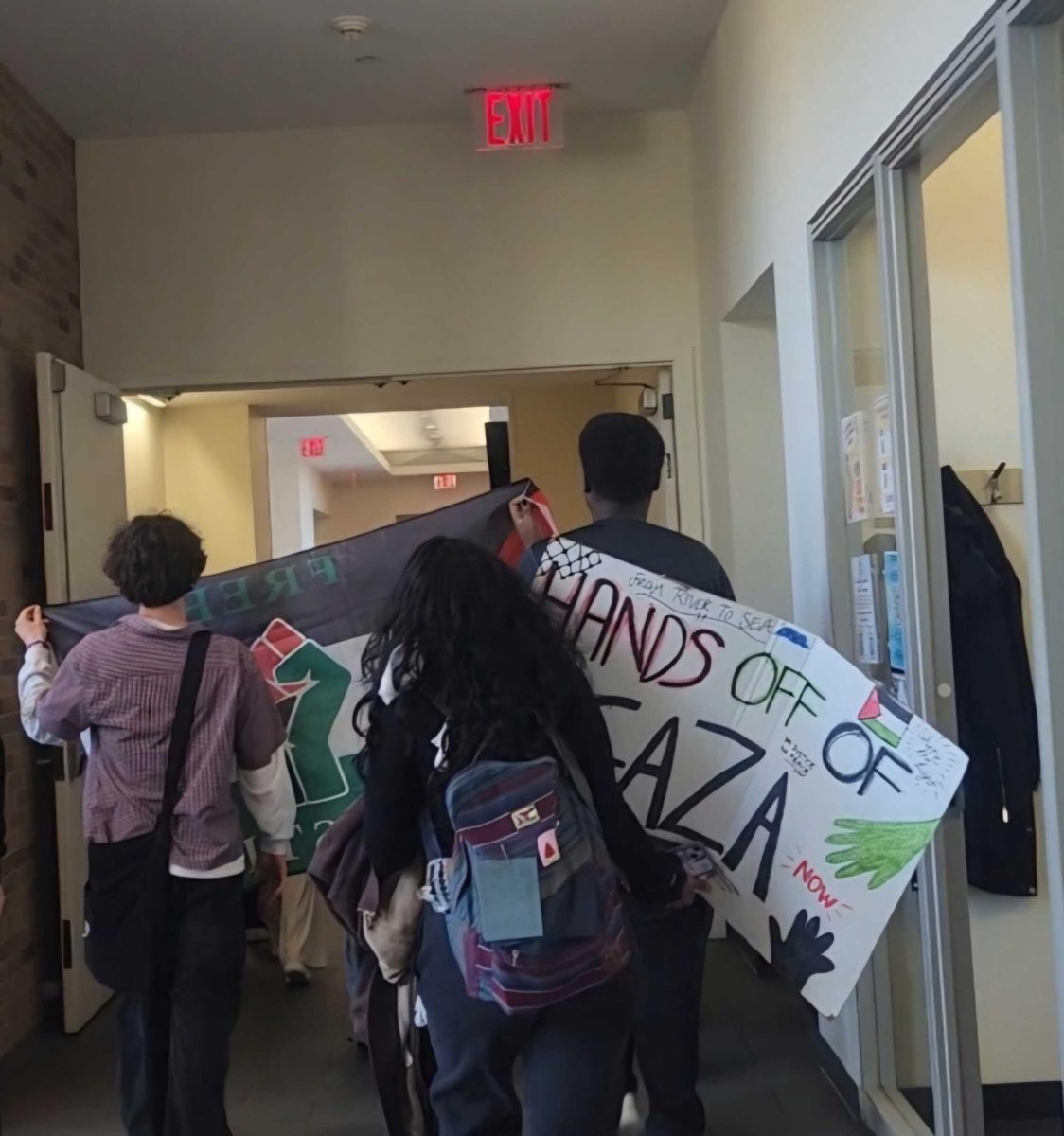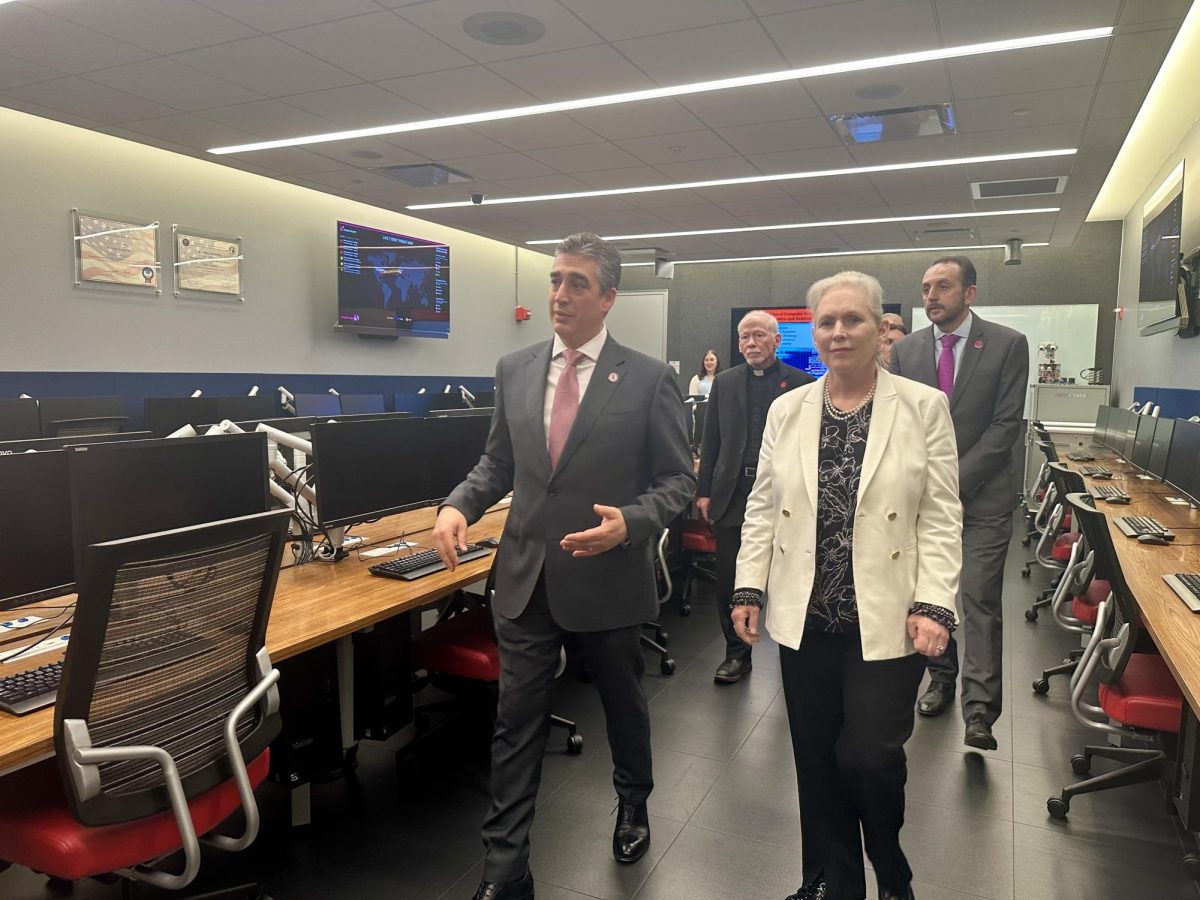In partnership with the University of Vienna in Austria and the Institute for International Communication (IICM), the St. John’s Collins College of Professional Studies hosted a WebEx webinar entitled, “A Global Conversation: Civility and Politics” on Oct. 16. The second webinar in the “Civility and Communication” series, this event discussed political communication in an increasingly polarized world.
“I think what part of civility is, is deceit. In other words, an agreed-upon deceit,” panelist Jack Phelan, a professor at Fordham University said.
The discussion was hosted by St. John’s Associate Professor Dr. Basilio Monteiro of the Mass Communication department and moderated by both Dr. Minna Aslama Horowitz from the IICM and Dr. Thomas Bauer from the University of Vienna.
The panelists of the event, who are journalists and professors that deal with media ethics from all over the world from Ghana to New York, included Dr. Barbara Trionfi, Dr. Nana Walzer, Dr. Jack Phelan, Dr. Kara Almino and St. John’s Assistant Professor of Journalism, Dr. Elisabeth Fondren. Attendees joined from all over the world, hailing from countries such as Vietnam, Brazil, Jordan and England, among others.
The presenters attempted to define civility in the modern political arena while also analyzing the civility of current political leaders. Most of the speakers agreed that the current climate of extreme bipartisanship in politics is due to the uncivil action of the “dark leaders” of today. These kinds of politicians get their power by manipulating citizens through the apparent credibility found in a leader’s “authenticity,” which is often valued above competency and confused for honesty.
Phelan notes that “Politicians abuse civility by practicing ‘Honest Graft.’” A term coined by George Washington Plunkitt, it is an activity that is technically legal, while being ethically questionable and may provoke strong criticism.
The effects of this twisted leadership can be seen on an individual, interpersonal and societal level. Several speakers attributed civilians’ trust in the media has plummeted exponentially to leaders’ misrepresentation of the truth and rhetoric. Information that should and previously would be damaging to governments around the world has had minimal consequences, diminishing journalists’ watchdog role. People seem to no longer care about journalism, not believing information published by the other side.
“Civility in regards to communication [is] the quality and ability to find a middle ground,” Fondren stated.
Fondren discussed how journalists can restore the lost middle ground that defines civility using the tools of information, ideas and evidence to give readers the broadest perspective. Journalists must keep the focus on facts, as well as proportionality, according to Fondren. The issue is that cynicism, the corrosion of political language and displacement of facts are diminishing society’s value of truth for the basis of decisions.
In her classes at St. John’s, Fondren teaches students how to use their journalistic “tool bag” to be fair, ethical and proportional. She discusses the need for anti-propaganda to help prevent the spreading of racist or violent messages, as well as how analyzing such partisan messages ties into her own research, where she looks at past propaganda and how it has affected the world. Fondren emphasizes that journalism students and the public alike must be educated on democratic ideas and truthful coverage of news to restore the dignity and meaningfulness in conversations on politics.
“Journalists are exposing what should be damaging information for the government, for those in power. And yet, nothing happens,” Trionfi said.




















